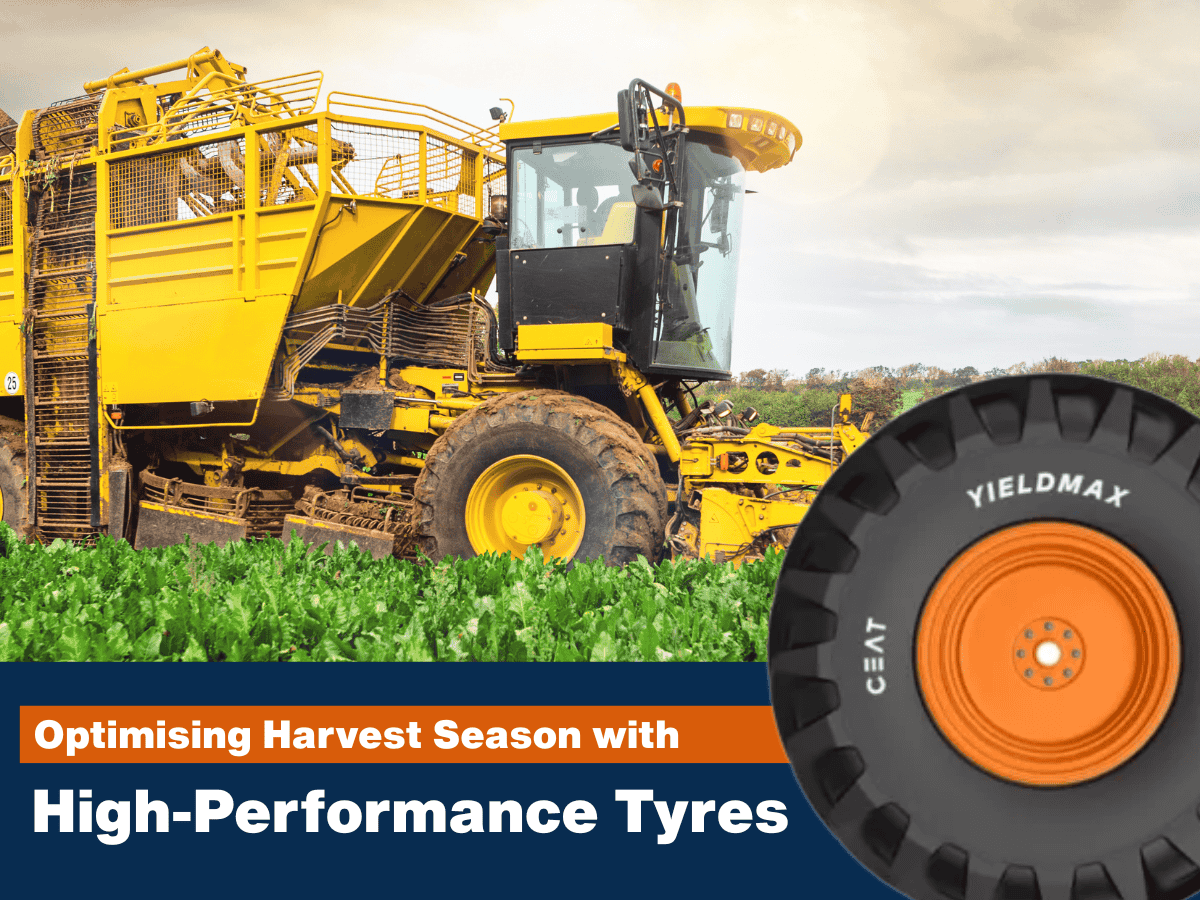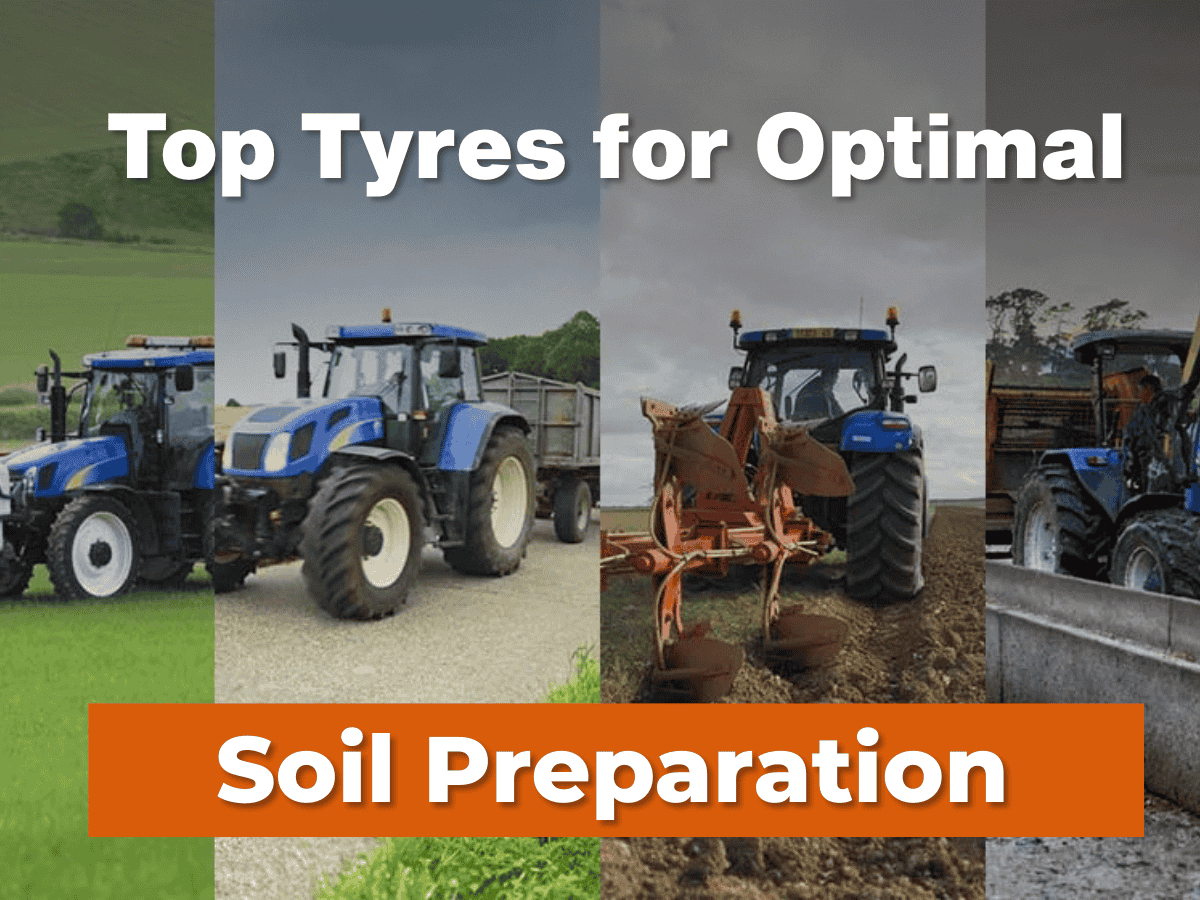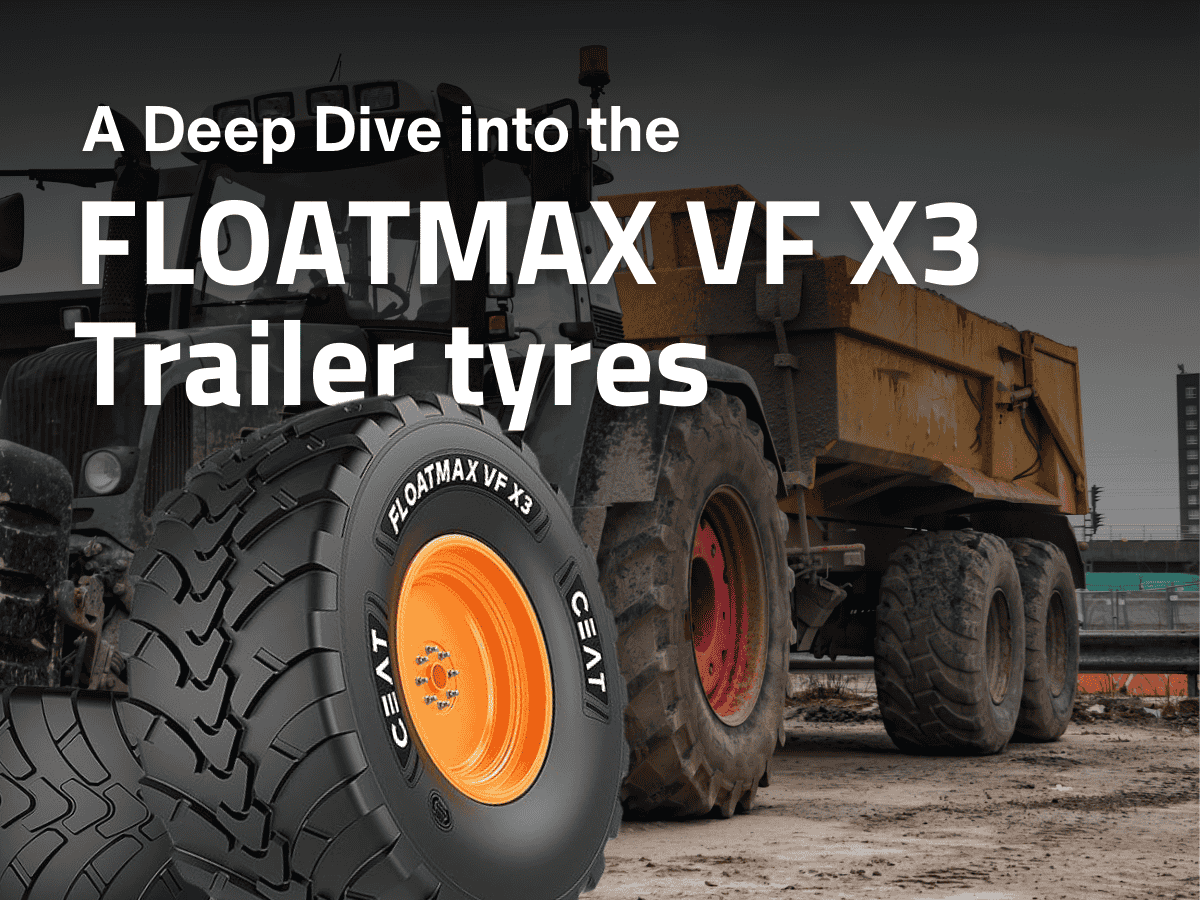ceat-speciality:blogs-tags/all,ceat-speciality:blogs-tags/products
CEAT Specialty FLOTATION PLUS Trailer Tyres: The Ideal Fit for Agriculture 4.0
Sat, 12 Apr 2025 | PRODUCTS
In today’s world of modern farming, where technology and innovation are shaping the future of agriculture, one area that continues to receive significant attention is the efficiency and sustainability of agricultural equipment.
As farming practices become more advanced, the demands on machinery, especially trailers, grow substantially. To address these needs, CEAT Specialty FLOTATION PLUS Trailer Tyres cater to the evolving demands of Agriculture 4.0.
The FLOTATION PLUS tyres are not just another set of wheels for agricultural machinery; they are a technological advancement that aims to enhance performance, reduce environmental impact, and optimise agricultural operations.
This blog delves into the key features of our trailer tyres and why they are the ideal fit for modern farming.
The Evolution of Agricultural Machinery: Agriculture 4.0
Agriculture 4.0 is a term used to describe the fourth agricultural revolution, where modern technologies such as precision farming, automation, and data analytics are integrated into farming processes. This shift is characterised by higher efficiency, better yield predictions, optimised resource use, and reduced environmental impact. With the rise of such technologies, equipment like tractors, trailers, and tires must keep up with the growing expectations of high performance, sustainability, and minimal disruption to soil health.
As farms get larger and the pressures to improve productivity increase, trailers are often tasked with carrying heavier loads over large areas. It’s no longer enough for trailers to simply carry cargo efficiently. They must also be gentle on the soil, minimize compaction, and protect the crops in the field. Here is where the FLOTATION PLUS tyre from CEAT Specialty truly shines.
Larger Volume and Footprint for Increased Ground Contact
One of the standout features of the FLOTATION PLUS tyre is its larger volume and expanded footprint. This design is crucial for ensuring that the tyre has more surface area in contact with the ground, which is vital for reducing soil compaction. Compaction is a persistent problem in agriculture, especially with the increasing weight of machinery used for farming. When tyres exert too much pressure on the soil, they compact the earth, making it harder for roots to penetrate and for water and nutrients to reach plants.
By increasing the tyre's footprint, CEAT’s FLOTATION PLUS tyres effectively distribute the weight of the trailer over a larger area. This reduces the pressure exerted on the soil, thus preventing compaction and ensuring that the soil remains in optimal condition for plant growth. Reduced soil compaction leads to better root development, improved drainage, and ultimately, enhanced crop yields. This feature is particularly essential for farmers who practice precision agriculture and are aiming to preserve the health of their soil for future seasons.
Optimised Design to Minimise Crop Damage
Another key aspect of the FLOTATION PLUS tyre is its rounded shoulders with optimal curvature. This design is specifically tailored to minimize crop damage, a concern that is often overlooked when discussing tyres in agriculture. When a trailer passes through fields, particularly during harvest or transport of goods, the tyres can come into contact with growing crops. Standard tyres can cause significant damage to crops, leaving behind bruised or broken plants that could have otherwise reached their full potential.
The rounded shoulders of the FLOTATION PLUS tyre are engineered to ensure that the tyre's edge has a smooth, gentle transition onto the ground. This helps to minimize the risk of damaging crops while maintaining optimal ground contact. The carefully optimized curvature of the tyre shoulder allows it to glide over the soil, avoiding unnecessary disruption to the crops growing beneath. This is particularly valuable when operating in fields with high-density planting, where space is limited, and crops are more susceptible to damage.
Durability and Long-Term Performance
In addition to these performance-enhancing features, the FLOTATION PLUS trailer tyres are built for long-term durability. Agriculture requires equipment that can handle tough conditions – from wet fields to dry, rocky terrain – and the FLOTATION PLUS tyres are designed to stand up to these challenges. Constructed from high-quality materials, they offer increased resistance to wear and tear, extending the lifespan of the tyre. This makes them an excellent investment for farmers looking to reduce the overall maintenance costs associated with their equipment.
The robust construction of these tyres also allows them to maintain consistent performance over time, regardless of the growing demands placed on them. Whether farmers are hauling heavy loads or driving across challenging terrains, the FLOTATION PLUS tyres will continue to deliver high performance, ensuring minimal downtime and maximum productivity.
Why Choose CEAT FLOTATION PLUS Trailer Tyres?
CEAT Specialty’s FLOTATION PLUS tyres are a perfect fit for modern agriculture, where precision, sustainability, and efficiency are key to success. These tyres address multiple challenges that farmers face, from preventing soil compaction to minimizing crop damage, all while maintaining durability and performance. With the increasing importance of preserving soil health and improving crop yields, the FLOTATION PLUS tyres provide an essential solution for modern farming.
As we move further into Agriculture 4.0, technologies that protect the environment and increase operational efficiency will become even more crucial. CEAT Specialty has demonstrated that innovation can provide both performance and sustainability, making their FLOTATION PLUS Trailer Tyres a smart investment for the forward-thinking farmer.
With CEAT Specialty's commitment to excellence, the FLOTATION PLUS tyres are designed to help farmers keep pace with the demands of modern farming, delivering results that benefit both the land and the bottom line.






















































